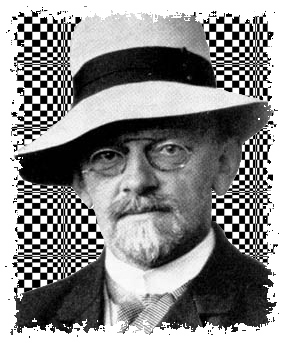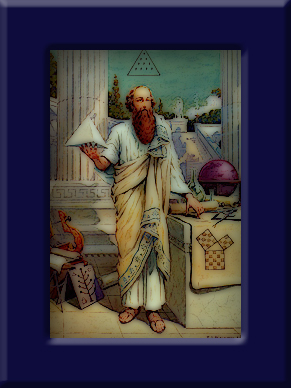Are there any odd perfect numbers?
home | courses | topics | theorems | starters | worksheets | timeline | KS3 | KS4 | KS5
Euclid had given a method for constructing perfect numbers in his IX book of The Elements. He said that
If as many numbers as we please beginning from a unit be set out continuously in double proportion, until the sum of all becomes a prime, and if the sum multiplied into the last make some number, the product will be perfect.
For example, start with 1, double it and double it again, etc.
1 + 2 + 4 = 7
7 is a prime. Now multiply 7 with the last number from the sum, which is 4
7 x 4 = 28
Indeed, 28 is a perfect number!
You can try to find the next perfect number by using the same method - this method is, by the way, called Euclid's algorithm. To generalise the method, you can write it as follows
If, for some ![]() is a prime number, then
is a prime number, then ![]() is a perfect number.
is a perfect number.
Much later, Descartes and Mersenne corresponded on the subject of perfect numbers. Descartes once (in 1638) wrote to Mersenne that he thought he was able to prove that there are no even numbers which are perfect apart from those generated by Euclid's algorithm, and he also stated that he thought that there are no odd perfect numbers.
Both Fermat and Euler were also interested in perfect numbers. Euler found the eight perfect number in 1732 - it is
![]()
But no one has ever found any odd perfect number yet! Numbers up to 100^300 have been checked and none of them is odd and perfect at the same time! It may be pretty logical conclusion to make - one is either odd or perfect, can't be both... In fact, more recently (in 2005, by Hare) it has been proven that if there is such number which is both perfect and odd, it will be very large indeed, as it will have to have more than 75 distinct prime factors!!
See a page about some famous theorems and conjectures, or about some of the famous solved problems from the history of mathematics.

Hilbert posed some 23 mathematical problems back in 1900. Some of them have been solved, but some haven't. Learn about them and try to solve them, and if you succeed, you may become very famous and very wealthy!
Learn more about Hilbert by clicking on his picture.

Of course, the most famous of all the theorems is Pythagoras' Theorem. Click on his picture to find more about him.
artefacts | numerals | concepts | people | places | pythagoreans | egyptians | babylonians
_____________________________________________________________________________________________________________________
Acknowledgements | Copyright | Contact | Mission Statement | Tell a friend about this site

